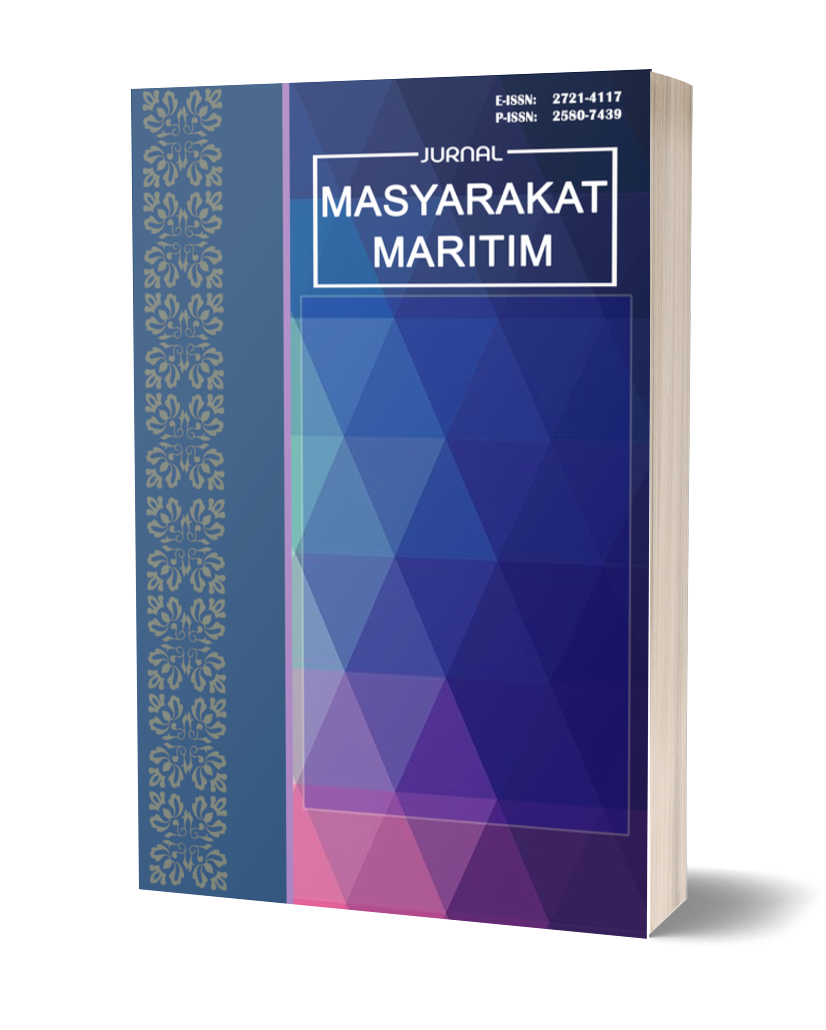Cyber Harassment: Fenomena Hate Comment Di Era Pandemi Covid-19 Pada Akun Tik-Tok @Y***Q
DOI:
https://doi.org/10.31629/jmm.v5i1.3419Keywords:
cyber harassment, hate comment, identity, KBGO, Tik-Tok, covid-19Abstract
The era of the covid-19 pandemic, the popularity of social media shows an increasingly significant trend, especially in Indonesia. This fact is directly proportional to the emergence of various kinds of social media that offer various interesting features, one of which is the Tik-Tok application. Along with its development, many internet citizens (netizens) have used the comment feature on the content presented in the Tik-Tok application. However, this feature is used as a vehicle for self-existence through comments that are vulnerable to being included in the cyber-harassment category. This article tries to elaborate on the case of cyber harassment in the Tik Tok application in the form of hate comments on the @y***q account that occurred during the covid-19 pandemic era. Based on the theoretical framework of Social Identity, it can be explained how the phenomenon of cyber harassment is present as a consequence of technological developments which ultimately leads to Kekerasan Berbasis Gender Online (KBGO). Tik-Tok as social media is not friendly in presenting a gendered space that is used by women to express themselves through video content wrapped in the existence of self-identity, opposing discrimination, and denying the perpetuation of the definition of beautiful women based on other people's constructions (netizens).
Downloads
References
Buku:
Brequet, T. (2010). Cyberbulling. Rosyen Publishing.
Effendi, M. (1994). Dimensi/Dinamika Hak Asasi Manusia dalam Hukum Nasional dan Internasional. Jakarta: Ghalia Indonesia.
Gagliardone, I., Gal, D., Alves, T., & Martinez, G. (2015). Countering Online Hate Speech. In UNESCO Publishing. Paris: UNESCO.
Tafjel, H. (1982). Social Identity Intergroup Relations. Cambridge: Cambridge University Press.
Tafjel, H., & Turner, J. C. (1997). The Social Identity Theory of Intergroup Behavior. London: Sage Publications.
Artikel Jurnal:
Cassidy, W., Brown, K., & Jackson, M. (2012). “Making Kind Coolâ€: Parents’ Suggestions for Preventing Cyber Bullying and Fostering Cyber Kindness. Journal of Educational Computing Research, 46(4), 415–436. https://doi.org/10.2190/EC.46.4.f
Cesaroni, C., Downing, S., & Alvi, S. (2012). Bullying Enters the 21st Century? Turning a Critical Eye to Cyber-bullying Research. Youth Justice, 12(3), 199–211. https://doi.org/10.1177/1473225412459837
Christian, J. H. (2020). Sekstorsi: Kekerasan Berbasis Gender Online Dalam Paradigma Hukum Indonesia. Binamulia Hukum, 9(1), 83–92. https://doi.org/10.37893/jbh.v9i1.103
Hasiholan, T. P., Pratami, R., & Wahid, U. (2020). Pemanfaatan Media Sosial Tik Tok Sebagai Media Kampanye Gerakan Cuci Tangan Di Indonesia Untuk Mencegah Covid-19. Communiverse : Jurnal Ilmu Komunikasi, 5(2), 70–80. https://doi.org/10.36341/cmv.v5i2.1278
Holfeld, B., & Grabe, M. (2012). Middle School Sudents’ Perceptions of and Responses to Cyber Bullying. Journal of Educational Computing Research, 46(4), 395–413. https://doi.org/10.2190/EC.46.4.e
Holfeld, B., & Leadbeater, B. J. (2015). The Nature and Frequency of Cyber Bullying Behaviors and Victimization Experiences in Young Canadian Children. Canadian Journal of School Psychology, 30(2), 116–135. https://doi.org/10.1177/0829573514556853
Irawan. (2018). Hate Speech di Indonesia: Bahaya dan Solusi. Mawa’Izh: Jurnal Dakwah Dan Pengembangan Sosial Kemanusiaan, 9(1), 1–17. https://doi.org/10.32923/maw.v9i1.712
Kandedes, I. (2020). Kekerasan Terhadap Anak Di Masa Pandemi Covid-19. Jurnal Harkat : Media Komunikasi Gender, 16(1), 66–76.
Landstedt, E., & Persson, S. (2014). Bullying, Cyberbullying, and Mental Health in Young People. Scandinavian Journal of Public Health, 42, 393–399. https://doi.org/10.1177/1403494814525004
Ningrum, D. J., Suryadi, S., & Chandra Wardhana, D. E. (2018). Kajian Ujaran Kebencian Di Media Sosial. Jurnal Ilmiah KORPUS, 2(3), 241–252. https://doi.org/10.33369/jik.v2i3.6779
Radhitya, T. V., Nurwati, N., & Irfan, M. (2020). Dampak Pandemi COVID-19 Terhadap Kekerasan dalam Rumah Tangga. Jurnal Kolaborasi Resolusi Konflik, 2(2), 111–119. https://doi.org/10.24198/jkrk.v2i2.29119
Rayana, U. (2020, September 15). Meski Indonesia Salah Satu Pengguna TikTok Terbesar, ByteDance Pilih Singapura Sebagai Sasaran Investasi. Selullar.Id.
Reed, E., Wong, A., & Raj, A. (2020). Cyber Sexual Harassment: A Summary of Current Measures and Implications for Future Research. Violence Against Women, 26(12–13), 1727–1740. https://doi.org/10.1177/1077801219880959
Rifauddin, M. (2016). Fenomena Cyberbullying pada Remaja (Studi Analisis Media Sosial Facebook). Khizanah Al-Hikmah: Jurnal Ilmu Perpustakaan, Informasi, Dan Kearsipan, 4(1), 35–44.
Susilowati. (2018). Pemanfaatan Aplikasi Tiktok Sebagai Personal Branding Di Instagram (Studi Deskriptif Kualitatif Pada Akun @bowo_allpennliebe). Jurnal Komunikasi, 9(2), 176–185. https://ejournal.bsi.ac.id/ejurnal/index.php/jkom/article/view/4319
Vanderbilt, D., & Augustyn, M. (2010). The effects of bullying. Paediatrics and Child Health, 20(7), 315–320. https://doi.org/10.1016/j.paed.2010.03.008
Young, R., & Sweeting, H. (2004). Adolescent Bullying, Relationships, Psychological Well-Being, and Gender-Atypical Behavior: A Gender Diagnosticity Approach. Sex Roles, 50(7–8), 525–537. https://doi.org/10.1023/b:sers.0000023072.53886.86
Berita Online:
Pratomo, Y. (2019). 49 Persen Netizen di Indonesia Pernah Mengalami “Bullying†di Medsos. Tekno Kompas.
Puspita, R. (2020, November 28). Komnas: Kekerasan Berbasis Gender Daring Naik Saat Pandemi. Antara.
Stephanie, C. (2021). Riset Ungkap Lebih dari Separuh Penduduk Indonesia “Melek†Media Sosial". Tekno Kompas.
Laporan:
Komnas Perempuan. (2019). Korban Bersuara, Data Bicara Sahkan RUU Penghapusan Kekerasan Seksual sebagai Wujud Komitmen Negara: Catatan Kekerasan terhadap Perempuan. In Catatan Tahunan Tentang Kekerasan Terhadap Perempuan.
Undang-Undang:
UNIVERSAL DECLARATION OF HUMAN RIGHTS, (2015).
Website:
Arum, N. S. (2019). Mengenal Kekerasan Berbasis Gender Online (KBGO). Medium.Com. (diakses pada tanggal 03 April 2021)














